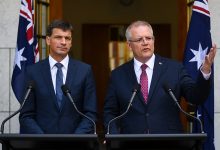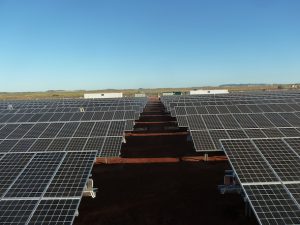John Gummer was the UK environment minister from 1993 to 1997. At the 1996 climate conference in Geneva he famously said that the Australian government was putting coal exports to Japan before the next generation of Australians (see here and here). Gummer has continued this scathing assessment in 2011, 2014 and 2015.
On Tuesday, as the last speaker at the first day of the Smart Energy Council’s online Smart Energy Summit he let rip again. After giving an upbeat (if partial – more of this later) account of UK actions, he was asked by the session moderator “why a net zero target is important.”
This had been put to other speakers, and is clearly and understandably a particular concern of the organisers.
Gummer (aka Lord Debden) did not disappoint. Targets were needed because “climate change is not going to stop.” The main problem is that the “Australian government is so slow, is not doing enough, doesn’t realise that it doesn’t control the agenda, climate change controls it.”
Having to (im)patiently explain facts to a recalcitrant child, Gummer said that the “realities of life are that every year we leave it, the more expensive and disruptive it becomes.”
In response to the question “what is the key to achieving bipartisanship?” Gummer kept to the same tone:
“First of all you have to accept the truth. Politicians, I’m afraid on both sides are not prepared to face up to the reality.” Specifically, Australian politicians had to accept that climate change is happening, that they have a responsibility to act and that Australia is not an exception.
Gummer argued that “Markets and regulation can be argued about, but the timing/urgent and reality can’t be argued about. Neither major political party is fighting this battle in the way it has to be fought”
The Green Party was not spared – according to Gummer it was at fault for not having concentrated on this issue alone (as distinct, perhaps – he did not elucidate – social justice issues) The Greens (and everyone else) “Need to put this ahead of everything else.”
In his speech Gummer, who has been head of the Committee on Climate Change, had argued that “Energy is key, but not the only thing. Countries get on it but only first step.”
He gave an, ah, interesting account of the coming of the Climate Change Act 2008, which foregrounded the role of the then conservative opposition, and completely ignored the role of the campaigning group Friends of the Earth and the extremely broad coalition of NGOs that were part of “the Big Ask.”
Gummer celebrated the UK as a pioneer of offshore wind (but didn’t mention that the offshore move was in part because onshore wind was blocked, de facto, by the Conservatives).
He advocated that everyone read the Pope’s Laudato Se – agreeing with its argument that climate change is a symptom of what we have done to the world
There are, according to Gummer, four urgent things:
- Abolishing the Internal Combustion Engine- he pointed out to the phase out by 2035 and mentioned the rumours that this might be brought forward to 2030 (to be clear- and Gummer wasn’t – this would be a phase out of NEW vehicles).
- Change method of heating houses (away from gas). Air source heat pumps would be one way, but the problem of old homes and insulation is huge (the UK housing stock has a lot of very old houses).
- Land use – farming, soils. – the need to sequestrate through trees ad soils. Gummer said “If not can’t win this battle”
- Research to fill in the gaps “we need to have an effective method of CCS and usage” and a hydrogen economy. (CCS has been as disastrous in the UK as it has in Australia – but the dream never dies, as Angus Taylor showed us recently. It’s too useful a dream to be retired…)
Gummer’s time was limited, I am sure if he had had longer he would have mentioned that the UK government has been gung-ho for fracking (Gummer called anti-fracking activists ‘extremists’), has thrown huge amounts of money at nuclear and hostility to renewables (see an academic article on this here).
On that the UK is nowhere near having the policies it needs to hit the much vaunted “carbon budgets” that the Committee on Climate Change he chairs dutifully complete. Nor did he mention that this is a logical sequel to former Prime Minister David Cameron’s 2013 command to “cut the green crap.”
From Australia, with its horrendous unending climate wars, the UK can look like it has its act together. It really, really doesn’t, but for a while tonight, the slickness and bracing jeremiad of John Gummer’s presentation allowed the mostly Australian audience to believe that somewhere else is significantly better off. If the Glasgow COP does go ahead, hopefully the UK will come under more rigorous scrutiny.







